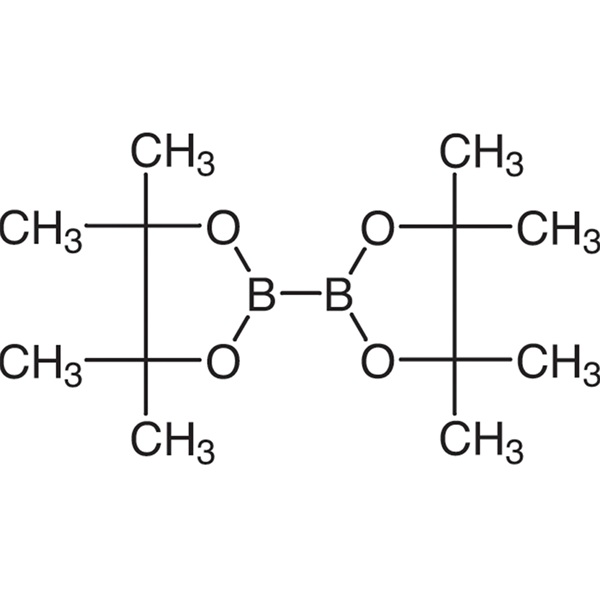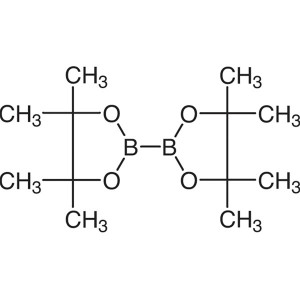Bis(pinacolato)diboron CAS 73183-34-3 Purity >99.5% (GC) Factory Hot Sale
Manufacturer Supply With High Quality, Commercial Production
Chemical Name: Bis(pinacolato)diboron CAS: 73183-34-3
| Chemical Name | Bis(pinacolato)diboron |
| Synonyms | 4,4,4',4',5,5,5',5'-Octamethyl-2,2'-bi-1,3,2-Dioxaborolane |
| CAS Number | 73183-34-3 |
| CAT Number | RF-PI1389 |
| Stock Status | In Stock, Production Capacity 20 Tons/Month |
| Molecular Formula | C12H24B2O4 |
| Molecular Weight | 253.94 |
| Solubility | Soluble in Methanol, Benzene, Ethanol. Insoluble in Water |
| Solubility in Methanol | Almost Transparency |
| Brand | Ruifu Chemical |
| Item | Specifications |
| Appearance | White Powder |
| Purity / Analysis Method | >99.5% (GC) |
| Melting Point | 135.0~145.0℃ (Melting Range≤3.0℃) |
| Water (K.F) | <0.30% |
| Single Impurity | <0.50% |
| Total Impurities | <0.50% |
| Test Standard | Enterprise Standard |
| Usage | Pharmaceutical Intermediates |
Package: Bottle, Aluminium foil bag, 25kg/Cardboard Drum, or according to customer's requirement.
Storage Condition: Store in sealed containers at cool and dry place; Protect from light and moisture.


Bis(pinacolato)diboron (CAS: 73183-34-3) is a covalent compound containing two boron atoms and two pinacolato ligands. It is soluble in organic solvents. It is a commercially available reagent for making pinacol boronic esters for organic synthesis. Unlike some other diboron compounds, B2pin2 is not moisture-sensitive and can be handled in air. Suzuki-Miyaura Cross Coupling Reaction; Boron Compounds. Reagent used for the synthesis of aryl, alkenyl, allyl and alkylboronic esters. Reagent used for the borylation of an α,β-unsaturated ketones. Reagent used for the synthesis of in vivo fluorescent probes. Reagent used for the diborylation of alkynes. In the Suzuki reaction, Bis(pinacolato)diboron has the advantages of high reaction selectivity, mild conditions, and high yield. For some compounds that are unstable or need to improve the selectivity of the reaction, Bis(pinacolato)diboron and aryl halide are used.


